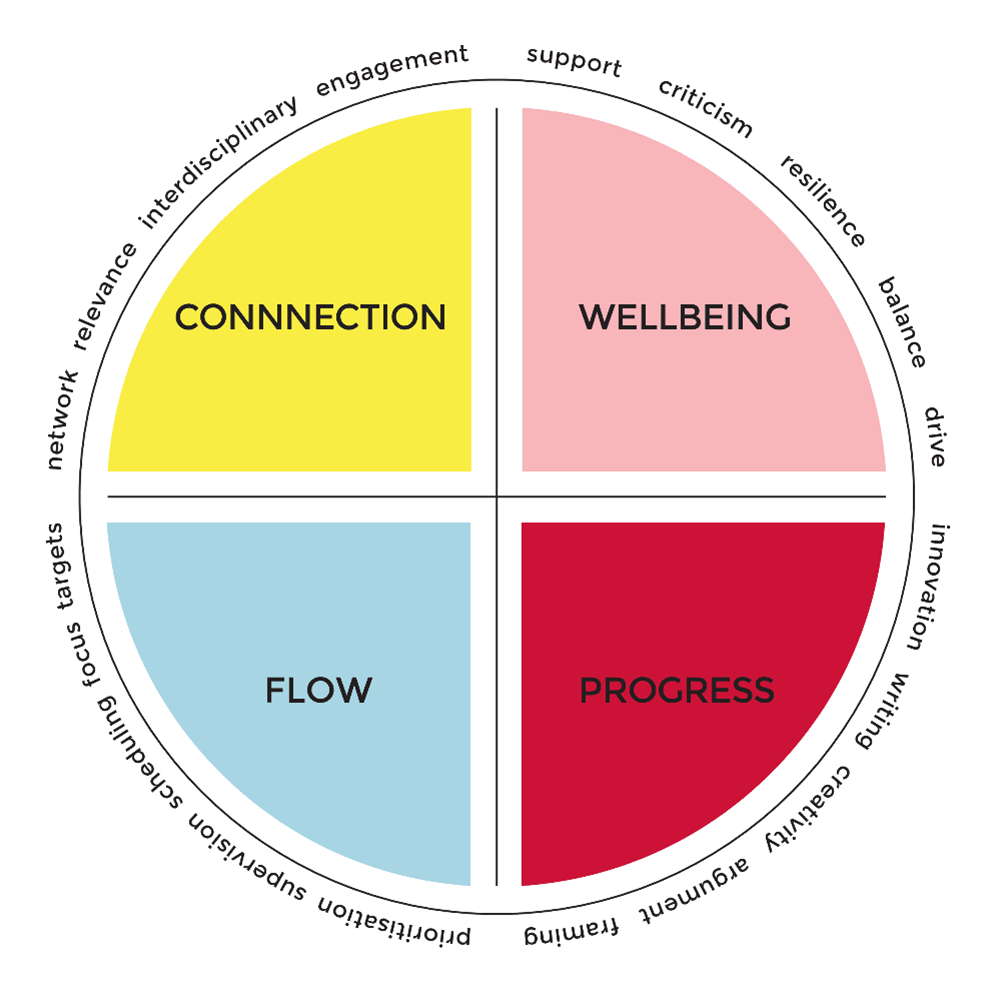Writing clearly and persuasively about your research is a vital skill to master but it does not always come easily. To help you develop your writing skills, King’s hosts two Royal Literary Fund Fellows each year. The Fellows are professional writers who can provide support to postgraduate research students across all disciplines and at all stages of their degrees (see our webpage to book an appointment).
One concern that our Fellows frequently encounter when working with students is a lack of confidence and the belief that writing comes easily to everyone but them. This is a common misconception; RLF Fellow Ros Schwartz confirms that writing is hard – even for professional writers. Fortunately, there are numerous techniques and practices that can help you refocus your writing and self-correct errors.
Here are 10 key tips from our 19/20 Fellows Ros Schwartz and Mirza Waheed, based on their many appointments with PGR students last year:
- Try printing out your work instead of always looking at it on a screen. You’d be surprised how much easier it is to pick up errors when you see your work on paper.
- Take your work to a new setting (outside your usual research/writing/work space) and give it a read for a fresh perspective.
- Leave yourself plenty of time for writing up and refining your work – don’t underestimate how long editing will take.
- Read your work aloud as this can help highlight punctuation problems or wordy sentences.
- If you can speak fluidly about your research but find it difficult to translate that into text, try dictating and then transcribing your work. There are even apps that can record your voice and transcribe for you.
- If you’re over-using words, pick them out and build a glossary of synonyms to help you diversify your language.
- Try separate readings of your work to focus on different issues, e.g. one for overall flow, one for punctuation, one for over-use of certain words and phrases using the ‘search’ function.
- Don’t be afraid to let your voice shine through, particularly in your early drafts. You can always refine the language as you edit, but your opinions and evaluations are critical in forming a strong thesis.
- Read proactively to develop a broader vocabulary; when you come across a word you don’t know, look it up in the dictionary and write a few sentences using it. Doing this regularly will increase your vocabulary and improve your writing style.
- Let your work sit for a day or two before reading it so you can revisit your writing with fresh eyes.
“Language isn’t just about words and meaning, it’s also about music. Punctuation is there to create pace and breathing spaces to allow the reader to digest the information.” Ros Schwartz
Useful sites for grammar, referencing, style, proofreading:
Manchester Phrasebank: http://www.phrasebank.manchester.ac.uk/
RLF Dissertation Guide: https://www.rlf.org.uk/resources-home/
Use King’s LibGuide for help with referencing (discuss your department’s preferred referencing style with your supervisor if unsure): https://libguides.kcl.ac.uk/reference
The Chartered Institute of Editors and Proofreaders is a UK-based organisation that maintains a directory of professional editorial services that may be of use: https://www.ciep.uk/
We advise research students seeking support with English as an additional language to explore the King’s Foundations courses and support: https://www.kcl.ac.uk/study/foundations.
“Many students felt pressured to write like an academic, to sound authoritative and scholarly. I told them they already are scholars and academics, so they need not force their hand and make a piece of writing impenetrable. Write in your own voice.” Mirza Waheed
November is Academic Writing Month!
King’s College London has joined WriteFest 2020 (#AcWriFest20), to support researchers contributing to Academic Writing Month (#AcWriMo).
Inspired by the amazing NaNoWriMo (National Novel Writing Month), this month-long celebration of academic writing caters to the specific needs of researchers. It’s hosted by PhD2Published and throughout the month they share dedicated blog posts about academic writing and literally thousands of tips via Twitter and Facebook. The month will consist of a selection of virtual workshops that will offer tools and strategies to help you reach your writing goals.
How can you get involved?
- Get writing in November with inspiration from all the contributions to #AcWriMo on Twitter
- Use the #AcWriFest20 hashtag to share your progress with other researchers at King’s College London and across the other Universities.
- Join the weekly, virtual Writing Retreats that are run by the Centre for Research Staff Development
Check out the full programme of workshops and WriteFest 2020 activities here.
Additional writing support
The Centre for Doctoral Studies offers several fantastic workshops and webinars to develop your writing skills, such as Clear & Concise Academic Writing, Fundamentals of Good Writing, a Virtual Writing Retreat, Writing for Publication in the Arts & Humanities, Publishing a Scientific Research Paper and more. These are open to all students, check out the Doctoral Training Brochure for more information.




